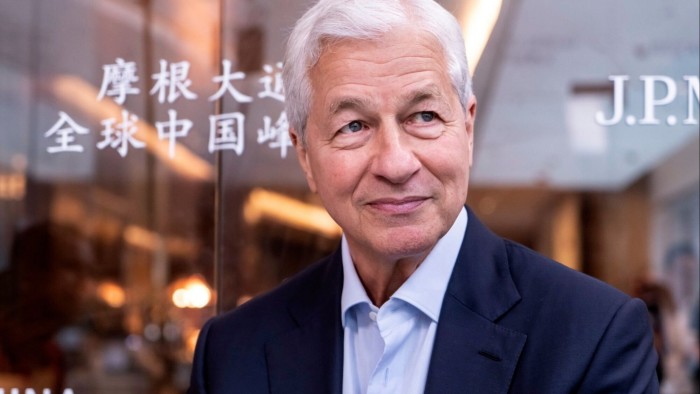Former McKinsey partner jailed for deleting emails on US opioid work

Unlock the Editor’s Digest for free
Roula Khalaf, Editor of the FT, selects her favourite stories in this weekly newsletter.
A former senior partner at McKinsey has been sentenced to six months in prison for deleting documents on the consulting firm’s work for opioids manufacturer Purdue Pharma.
Martin Elling pleaded guilty in January to a single charge of obstruction of justice, admitting he erased more than 100 computer files related to his work for Purdue after prosecutors began investigating the drugmaker’s role in an epidemic of opioid addiction ravaging the US.
Elling was on a team of McKinsey consultants who advised Purdue, the maker of OxyContin, on how to “turbocharge” sales of the painkiller. Purdue had hired McKinsey in 2013 to help revive sales of the painkiller, and Elling helped win the business and lead the team that devised the strategy, which involved aggressive marketing to doctors who liberally prescribed the drug, according to federal prosecutors.
In August 2018, after news reports that US authorities were investigating the company, Elling emailed himself a to-do list with the subject line “When home” that included the item “delete old pur [Purdue Pharma] documents from laptop”, according to court filings.
A forensic analysis showed that a folder named “Purdue” disappeared along with more than 100 documents. Prosecutors said the deletions were intended to shield evidence about his and McKinsey’s role in the US public health crisis stemming from opioid addiction, which has led to nearly 1mn deaths since the turn of the century.
McKinsey has paid about $1.6bn to settle an array of legal claims that its work for opioid manufacturers contributed to the addiction crisis, including a $650mn deferred prosecution agreement with the US justice department in December. The firm has said its opioid work was a source of “profound regret” and that it has since revamped risk management processes.
Elling was on Thursday sentenced to six months in prison plus 1,000 hours of community service over two years of supervised release, according to a spokesperson for his lawyers.
“Martin fully accepts responsibility for his conduct, for which he is extremely sorry,” his legal team said in a statement. “He intends to spend the remainder of his life seeking to regain the trust of those whom he disappointed with his conduct.”
Prosecutors had argued for a 12-month sentence, “to send a message to white-collar defendants that they are not above the law, and to deter others from attempting to evade responsibility by destroying evidence”.
Elling’s attorney, Thomas Bondurant, wrote in a filing ahead of sentencing that his client “sincerely regrets his actions, he understands their severity, and he fully accepts their consequences”, and that he had “already paid a great price for his actions”.
Elling was fired by McKinsey in 2021 after the disclosure of an internal email in which Elling discussed deleting documents. Bondurant said that a prison term would mean Elling could not return to Thailand, where he has been living since 2019.
Some of the firm’s most senior former executives weighed in as character witnesses, including former managing partner Kevin Sneader, and Elling’s attorneys called his actions “an extraordinary aberration” in a 30-year McKinsey career.
Sneader, who led McKinsey as its global managing partner from 2018 to 2021 and is now an executive at Goldman Sachs, called Elling “generous; knowledgeable; well travelled; insightful” in a character reference submitted to Judge Robert Ballou of the US District Court for the Western District of Virginia.
“Martin was seen as a truly valued coach to 100s of colleagues who benefited from his generosity of time even though there were many more financially rewarding ways in which he could have spent the countless hours to which he devoted himself to help others succeed,” Sneader wrote.
Elling also attracted character references from Michael Silber, McKinsey’s former chief financial officer, and Katy George, its former chief people officer who is now at Microsoft, among 39 written submissions ahead of the hearing.





